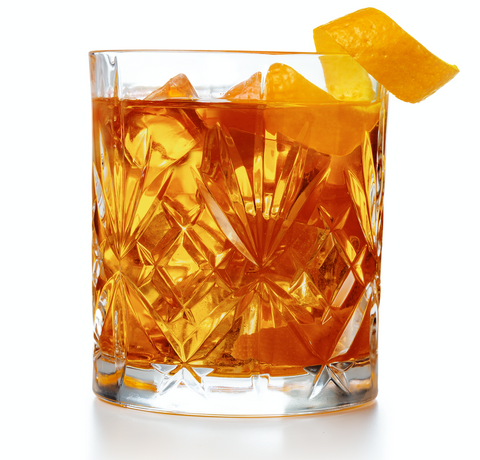The Beverage Bible All Young Professionals Need: Part One Whiskey

Paul the Professional is a mid-20s wealth management associate at one of the most well-known trust firms in the city. With aspirations of quickly moving up the corporate latter, he’s a hard worker and highly motivated. Yesterday, he was invited to accompany some of the senior members of the firm to a private happy hour on Friday at The Charlemagne.
He’s excited, but nervous, because the extent of his alcohol knowledge surrounds scheduled games of beer pong that he and his fraternity brothers played in college. He doesn’t know the difference between cognac or whiskey, vodka or gin. Ordering a Bud Light is out of the question, but that’s all he knows. He needs help—he wants to make a great impression, but more importantly, choose a drink that won’t get him roasted.
This is a resource for young professionals who might be a little intimidated and uninformed when it comes to the “art” of socializing with work colleagues, especially when it pertains to choosing a respectable beverage. A couple minute’s glance at this document will help in deciding what to order, as well as provide a few tips about drinking while networking.
Whiskey: A dark alcohol that is made from grain; typically barley, corn, rye and/or wheat
Origin: All over. The US, Ireland, Scotland, Canada and Japan are the biggest producers.
Fun Fact: Maybe in a nod to its original purpose as medicine, whiskey comes from a Gaelic phrase meaning "water of life," also known as “aqua vitae” in Latin. Drink too much of it and it becomes “water of regret.”
Whiskey is typically ordered neat (or straight), with a splash of water or on the rocks, which is a great introduction in developing an appreciation for the taste of whiskey. At first, you might find it too strong, but let the ice/water dilute it a bit and grow from there!
Scotch: It’s whiskey. But from Scotland
Origin: Scotland
Fun Fact: “Moonshine” comes from the time when Scottish distillers took to brewing their whiskey at night to avoid the English Malt Tax of 1725.

Bourbon: Also whiskey. But made from at least 51% corn, mostly in Kentucky
Origin: Attributed to Elijah Craig of Kentucky; however, it is said that Bourbon gets its name from an early distiller name Jacob Spears who lived in Bourbon County, Kentucky. Provides a “smoky” flavor.Fun Facts: Bourbon is America’s only native spirit, as declared by Congress in 1964. Bourbon sold in the U.S. must be produced in the U.S. and stored in a new container of charred oak, hence the “smoky” flavor and reddish color.
Here are some brands to ask for:
Whiskeys – Maker’s Mark, Bulleit, Basil Hayden’s, Blanton’s (This is very top shelf and one of the best. Drink this straight.)
Popular Cocktails
Old Fashioned
2 oz whiskey or rye bourbon
2 dashes of bitters
1 sugar cube (or 1 bar spoon simple syrup)
Orange twist for garnish
Manhattan
2 oz whiskey
½ oz sweet vermouth
1-2 dashes bitters
Cherry for garnish
John Collins
1 1/2 oz Whiskey (bourbon)
1 oz lemon juice
1/2 oz simple syrup
2 oz club soda
Garnish with orange slice and cherry
Highball
2 oz Whiskey
6 oz ginger ale

“Straight, no chaser, baby” and other must-know bar terms
“Neat” or “Straight”
- Single, unmixed liquor served at room temperature (usually higher-end Whiskey, Bourbon, Scotch. The stuff you want to ACTUALLY taste – or a way to pretend you know your liquor.)
“Straight-up”
- Shaken or stirred with ice, then strained into a glass (think James Bond and martinis)
“On-the-rocks”
- Poured over ice (commonly margaritas)
“Frozen”
- Crushed ice mixed in (also margaritas)
“With a twist”
- Adds a splash of citrus, with the rind as garnish
“Well” vs “Top Shelf”
- Refers to price and sometimes quality of liquor, with “well” being lower priced and “top shelf” being more expensive. Well liquors are usually just fine for mixed drinks. If you’re buying a drink for a colleague and they’re within earshot – go for the top shelf. Your boss? Always top shelf.
